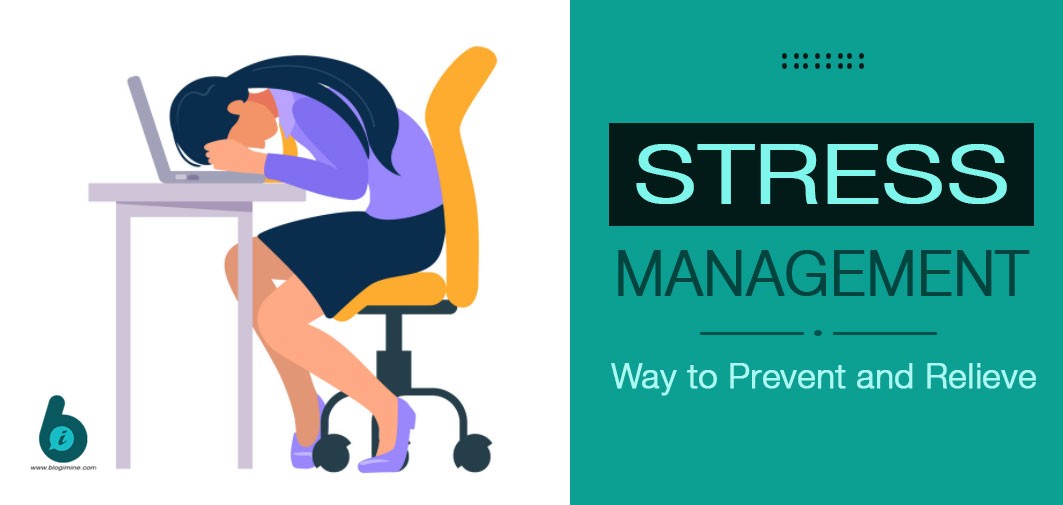
Low-stress lifestyle is important in today’s daily routine as it can have many positive effects on overall health and well-being. Stress is the body’s response to a perceived threat or challenge. When the brain perceives a situation as stressful, it triggers the release of hormones such as cortisol and adrenaline. These hormones prepare the body to respond to the stressor by increasing heart rate, blood pressure, and blood sugar levels. This is known as the “fight or flight” response. Stress can be caused by a wide range of factors, including work, relationships, financial concerns, Mental Health issues, and Physical health issues. It can also be caused by major life changes, such as the loss of a loved one, a move, or a new job.
Chronic stress can have a negative impact on both physical and mental health. Physically, chronic stress can lead to a weakened immune system, which increases the risk of infections and illnesses. It can also increase the risk of heart disease, diabetes, and obesity. Mentally, chronic stress can lead to anxiety, depression, and other mental health disorders.
Chronic stress can also lead to a number of negative behaviors, such as overeating, smoking, and drinking alcohol. These behaviors can further contribute to physical and mental health problems.
How to achieve low-stress lifestyle:
A low-stress lifestyle is essential for maintaining physical and mental well-being. Stress can take a toll on our bodies and minds, leading to a wide range of health problems, including anxiety, depression, heart disease, and obesity. But there are many ways to reduce stress and create a more balanced, relaxed lifestyle.
There are several ways to achieve a low-stress routine in life:
-
Regular Exercise:

One of the most effective ways to reduce stress is through regular exercise. Exercise has been shown to release endorphins, which are natural mood boosters. It also helps to reduce muscle tension and improve sleep, both of which can contribute to a more relaxed state of mind. Aim for 30 minutes of moderate-intensity exercise, such as brisk walking, cycling, or swimming, at least three times a week.
-
Balanced Diet:

Another important aspect of a low-stress lifestyle is a balanced diet. Eating a diet rich in whole, unprocessed foods can help to regulate blood sugar and improve energy levels, both of which can help reduce stress. In addition, incorporating foods high in omega-3 fatty acids, such as salmon, avocados, and walnuts, can help to reduce inflammation in the body and improve mood.
-
Meditation & Yoga:

Mindfulness practices such as meditation, yoga, and deep breathing exercises can also be beneficial in reducing stress. The best Yoga and Meditation Practices help to focus the mind and bring awareness to the present moment, which can help to reduce stress caused by dwelling on the past or worrying about the future. Aim to spend at least 10 minutes each day practicing mindfulness techniques.
-
Proper Sleep:

A lack of sleep can contribute to feelings of stress and anxiety. Aim to get at least 7-8 hours of sleep each night, and establish a consistent sleep routine by going to bed and waking up at the same time each day.
-
Prioritize self-care:

Make time for activities that bring you joy and relaxation, such as reading, listening to music, or spending time with loved ones. Incorporate regular exercise, healthy eating, and good sleep hygiene into your daily routine.
-
Seek professional help:

If stress is impacting your daily life, consider seeking professional help. A therapist or counselor can help you develop coping strategies and support.
-
Take breaks:

Take breaks throughout the day to rest, relax, and recharge. Even a short break can make a big difference in reducing stress levels and increasing productivity. Traveling is also very good for mental This can be a great way to de-stress and take a break from the daily routine. You can plan for a tour of Undiscovered Beautiful places of Himachal Pradesh in this summer.
It’s important to remember that everyone’s stress tolerance is different, and what works for one person may not work for another. It’s important to experiment with various stress management techniques to find what works best for you. Achieving a low-stress lifestyle requires a combination of different strategies and a willingness to change your daily routine.
Conclusion:
In conclusion, a low-stress lifestyle is essential for maintaining both physical and mental well-being. Chronic stress can lead to a range of negative health outcomes and can negatively impact the overall quality of life. To achieve a low-stress lifestyle, it’s important to prioritize self-care, practice mindfulness, set boundaries, seek professional help, manage time effectively, practice gratitude, take breaks, get organized, and make lifestyle changes such as incorporating healthy habits into a daily routine. Keep in mind that everyone’s stress tolerance is different and it’s important to experiment with various stress management techniques to find what works best for you. Remember that achieving a low-stress lifestyle requires a combination of different strategies and a willingness to change your daily routine.














